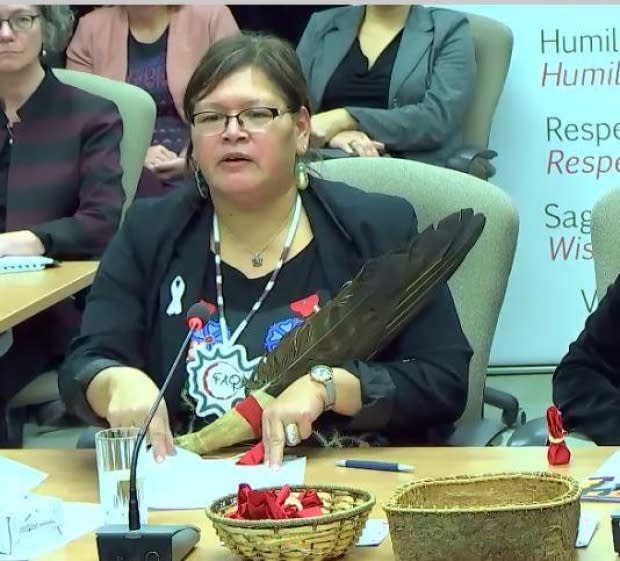Quebec women's group petitions Canada to end residual sex-based discrimination in the Indian Act

An Indigenous women's association in Quebec has launched a petition to end discrimination in the Indian Act, which they say continues to affect Indigenous women and their descendants despite multiple amendments to the act.
"Quebec Native Women was founded 45 years ago to fight discrimination in the Indian Act and we're still doing it today," said Éloïse Décoste, legal and policy analyst at QNW.
In the House of Commons e-petition launched on Feb. 8, the association calls on the government of Canada to "immediately end all forms of discrimination in the Indian Act."
The petition also calls on Canada to comply with the recent United Nations Human Rights Committee decision on Sharon McIvor's case, "abolish the Act's racist and patriarchal regime as soon as possible," and implement the United Nations Declaration on the Rights of Indigenous Peoples.
Concerns about consultation
Under the Indian Act prior to 1985, compulsory enfranchisement rules disproportionately affected women. For example, women with Indian status who married a non-status man lost their status, and their children were denied status.
Bill S-3, the most recent amendment aimed at removing sex-based discrimination from the act, received royal assent more than a year ago and all its provisions came into force except those related to the removal of a practice of linking registration reform to the date of 1951 (commonly known as the '51 cut-off).
The Office of the Minister of Crown-Indigenous Relations appointed Claudette Dumont-Smith as a Ministerial Special Representative to work with their partners to develop a plan to remove the 1951 cut-off, and on broader reforms to registration, membership and First Nations citizenship.
For Décoste, this consultation has been problematic.
"It's no longer time to be consulted on how much it's acceptable for Indigenous women to be discriminated against. It's time to uphold the right to equality," she said.
In a statement, QNW President Viviane Michel called it "ironic" that "the federal government has fought until the Supreme Court to challenge the fact that the duty to consult includes the legislative phase, but when it is time to respect Indigenous women's right to equality, they insist that they must first consult.
"Yet human rights are non-negotiable."
'Thinking ahead'
In addition to the petition, which had nearly 800 signatures Friday, the association will hold a public forum and legal clinic Saturday at Nouvel Hôtel in Montreal for people with questions about their eligibility for Indian status.
Alanis Obomsawin will keynote the forum, while Wanda Gabriel, Florence Benedict and Native Women's Shelter of Montreal executive director Nakuset will speak on a panel about the impacts of discrimination in the Indian Act.
"We're hoping to shape the conversation to start thinking ahead and start including Indigenous women's voices," said Décoste.
"We've been stuck fighting against the discrimination for so long that there hasn't been the time, space, or energy to think forward. It's more than time to have those conversations."
The day will end with a March for Equality from Norman Bethune Park to Cabot Square.

